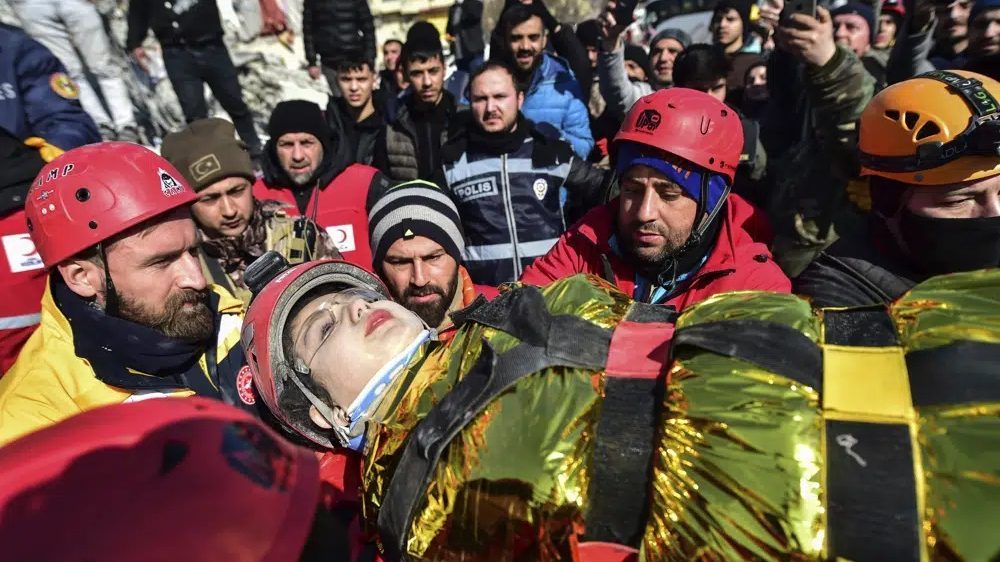How Michiganders are responding to the earthquake in Turkey and Syria
Some organizations trying to raise money without a presence on the ground are complicating recovery efforts, according to humanitarian Abdulrahman Al-dahhan.

Last week, a 7.8 magnitude earthquake struck southern Turkey and northern Syria, destroying multiple city blocks and ravaging the area. This, combined with an unusually large 7.4 magnitude aftershock, sent a region already dealing with a significant refugee crisis into further turmoil.
To date, the death toll in the two countries has surpassed 40 thousand people between the two countries.
It’s a devastating tragedy that also hits us in Michigan in a unique way. Over the past decade, the state has had one of the highest Syrian refugee populations in the United States. Their response highlights the many difficulties facing the region.
“This is… in Turkey’s modern history, the worst earthquake the region has seen.” — Ishaan Tharoor, Washington Post
Listen: How you can help the earthquake recovery effort in Turkey and Syria.
Guests
Ishaan Tharoor is a columnist on the foreign desk of The Washington Post, where he authors the “Today’s WorldView” newsletter and column. He says the region has never experienced an earthquake of this magnitude.
“This is…in Turkey’s modern history, the worst earthquake the region has seen,” says Tharoor.
Dr. Amjad Rass is the president of the Syrian American Medical Society, a global medical relief organization working on the front lines of crisis relief in Syria. He says destruction is the worst his organization has ever seen in the area.
“Our organization have dealt with many disasters in Syria from chemical attacks to massive military operation that resulted in the destruction of areas villages and towns and but this is this is beyond what we’ve seen,” says Rass. “It is really, something I wish I’d never saw in my life.”
Abdulrahman Al-dahhan is the HR Manager for Mercy-USA, an organization dedicated to alleviating human suffering and supporting individuals in their communities. He says for those seeking to help, it is important look into the organizations they are donating and make sure the aid reaches the people.
“We and other organizations that have been personally affected on the ground,” says Al-dahhan. “We have 600 staff inside Syria, and they have all been affected…the staff are still working. So when we have organizations that are coming and taking away from the efforts that we can focus on, while being on the ground, it…makes a horrible situation worse.”
Trusted, accurate, up-to-date.
WDET strives to make our journalism accessible to everyone. As a public media institution, we maintain our journalistic integrity through independent support from readers like you. If you value WDET as your source of news, music and conversation, please make a gift today.
